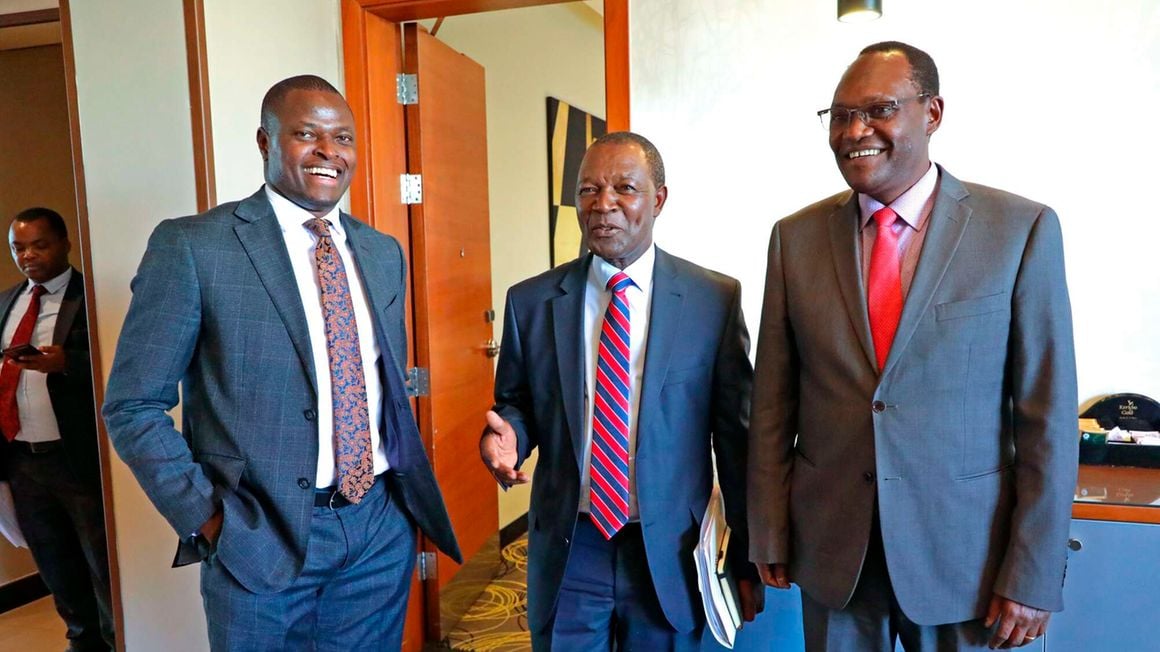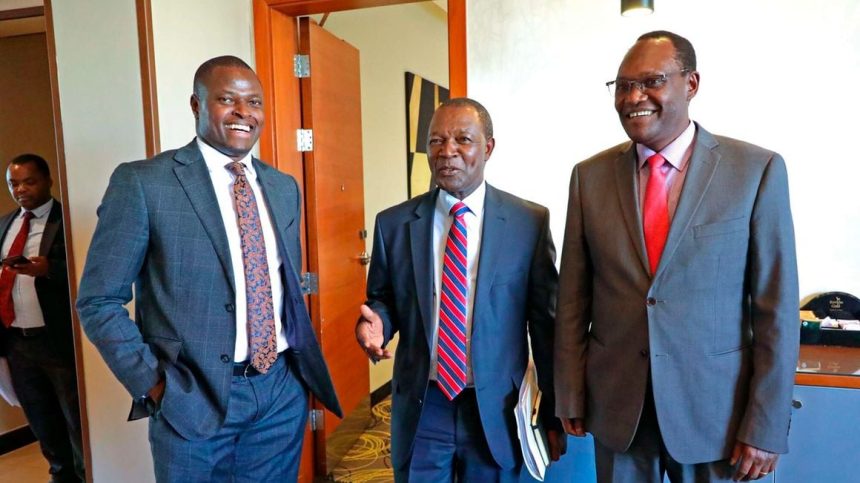The Kenya Revenue Authority (KRA) has been allocated an additional Sh1.2 billion to hire extra intelligence and enforcement officers who will identify and arrest tax cheats in fresh efforts to raise revenue and cut reliance on borrowing.
Parliament’s Budget and Appropriations Committee in a review of the budget for the year starting July has asked the Treasury to provide additional billions for the taxman to hire more employees.
The workforce will bolster revenue collection from new planned levies and pursue tax cheats as the Treasury seeks to raise at least Sh400 billion in additional taxes for the fiscal year starting next month.
The committee has inflated the budget by Sh81 billion on the expenditure plan the Treasury tabled in Parliament to Sh3.67 trillion, putting extra pressure on the KRA.
To shore up revenue, President William Ruto’s administration has proposed a raft of tax increases on items like fuel, housing, mobile money transfer and digital content, angering citizens and the opposition who say that the cost of living is already too high.
“Increase Sh1.2 billion (Recurrent) for KRA to employ tax assistants,” says the Budget and Appropriations Committee in proposals that await MPs’ approval.

The KRA, in early May, also advertised for revenue service assistant jobs, listing their role as overseeing the issuance of e-TIMS receipts by traders, ensuring VAT-registered traders are compliant and keeping an eye on compliance with excise regulations.
Other duties are compiling weekly and monthly reports on suspected cases of tax evasion, sending notices of seizures for products seized for excise, interception and verification of tax receipts issued by businesses and taxpayers.
Dr Ruto, who was elected last August on a platform of helping the poor, has had a rough ride in the first months of his term due to growing government debt repayments, revenue collection shortfalls and persistently high prices of basic commodities.
He is under pressure to raise revenues in the face of rising debt repayments amid the push to ensure financial stability and create jobs for young people.
The KRA collections, which form the bulk of cash streams for the government, are forecast to grow to Sh2.43 trillion from the current target of Sh2.04 trillion for the year ending June.
The Treasury will be leveraging on increased use of data and linkages between KRA systems with third parties such as banks and mobile money platforms like M-Pesa to spy on taxpayers’ activities, use of Internet-enabled cameras at excisable goods processing plants and full rollout of digital electronic tax registers (ETRs) to grow revenue.
In terms of tax collected as a proportion of annual economic output, Kenya has been underperforming other nations like South Africa, State House said.
Dr Ruto reckons that the government’s efforts to boost tax collection were being hampered by unscrupulous staff at the KRA, whom he says spent their time helping corrupt taxpayers to evade paying.
The government plans to slash the budget deficit to 4.3 percent of GDP in the 2023/24 financial year, from an estimated 5.8 percent in the current period, before cutting it further to 3.6 percent in the 2026/27 period through reduced borrowing.
The KRA’s enforcement unit has been using various databases to pursue suspected tax cheats, including bank statements, import records, motor vehicle registration details, Kenya Power records, water bills and data from the Kenya Civil Aviation Authority (KCCA), which reveal individuals who own assets such as aircraft.
Car registration details are also being used to smoke out individuals who are driving high-end vehicles but have little to show in terms of taxes remitted.
Read: KRA to track mobile money transactions in tax cheats purge
Kenya Power meter registrations are also helping the taxman to identify landlords, some of whom have been slapped with huge tax demands.
The taxman seeks details of suppliers and contractors hired by county governments.
It says a sharp increase in imports of luxury goods and multi-million shilling investments in real estate has opened its eyes to a potentially massive tax leakage, which if tapped could yield billions of shillings in additional revenues to the Exchequer.
The argument is supported by the fact that only a few Kenyans have officially registered as belonging to the high-income earners’ bracket despite the massive growth in conspicuous consumption, especially in Nairobi.
The proposals in the Finance Bill 2023, some of which were rejected by the previous parliaments, paint a picture of a government that is keen on giving the KRA teeth to bite while making it expensive to appeal tax demands in the event of a dispute.



